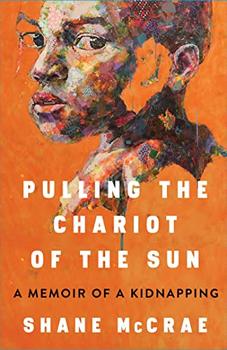Summary | Excerpt | Reviews | Beyond the book | Read-Alikes | Genres & Themes | Author Bio

A chillingly personal and exquisitely wrought memoir of a daughter reckoning with the brutal murder of her mother at the hands of her former stepfather, and the moving, intimate story of a poet coming into her own in the wake of a tragedy.
At age nineteen, Natasha Trethewey had her world turned upside down when her former stepfather shot and killed her mother. Grieving and still new to adulthood, she confronted the twin pulls of life and death in the aftermath of unimaginable trauma and now explores the way this experience lastingly shaped the artist she became.
With penetrating insight and a searing voice that moves from the wrenching to the elegiac, Pulitzer Prize–winning poet Natasha Trethewey explores this profound experience of pain, loss, and grief as an entry point into understanding the tragic course of her mother's life and the way her own life has been shaped by a legacy of fierce love and resilience. Moving through her mother's history in the deeply segregated South and through her own girlhood as a "child of miscegenation" in Mississippi, Trethewey plumbs her sense of dislocation and displacement in the lead-up to the harrowing crime that took place on Memorial Drive in Atlanta in 1985.
Memorial Drive is a compelling and searching look at a shared human experience of sudden loss and absence but also a piercing glimpse at the enduring ripple effects of white racism and domestic abuse. Animated by unforgettable prose and inflected by a poet's attention to language, this is a luminous, urgent, and visceral memoir from one of our most important contemporary writers and thinkers.
The memoir is bookended by the author's recounting of a recurring dream. Of this dream and a particularly vivid and traumatic memory from childhood, she writes, "What matters is the transformative power of metaphor and the stories we tell ourselves about the arc and meaning of our lives." For a writer especially, metaphor is a powerful tool. But Memorial Drive offers insight and instruction for anyone who has experienced trauma. The memories, dreams and other ephemera that haunt us may ultimately prove key to finding meaning and hope (or perhaps just the ability to put one foot in front of the other) in our darkest hours...continued
Full Review
 (810 words)
(810 words)
(Reviewed by Lisa Butts).
 In Memorial Drive, Natasha Trethewey explores how racism was a common and formative experience as she grew up in the South in the late 1960s and early '70s. This theme is established as she recalls driving to her mother's former apartment, located in Stone Mountain, Georgia, 20 miles northeast of Atlanta. The city is home to a national park that contains the largest Confederate monument in the country, which Trethewey describes as "A lasting metaphor for the white mind" and "the nostalgic dream of Southern heroism and gallantry."
In Memorial Drive, Natasha Trethewey explores how racism was a common and formative experience as she grew up in the South in the late 1960s and early '70s. This theme is established as she recalls driving to her mother's former apartment, located in Stone Mountain, Georgia, 20 miles northeast of Atlanta. The city is home to a national park that contains the largest Confederate monument in the country, which Trethewey describes as "A lasting metaphor for the white mind" and "the nostalgic dream of Southern heroism and gallantry."
Indeed, the monument, which is carved into the monadnock (isolated rock formation) known as Stone Mountain, began as the dream of a Confederate widow and charter member of the United Daughters of the ...

If you liked Memorial Drive, try these:

Pulling the Chariot of the Sun
by Shane McCrae
Published 2023
An unforgettable memoir by an award-winning poet about being kidnapped from his Black father and raised by his white supremacist grandparents.

by Wright Thompson
Published 2025
A shocking and revelatory account of the murder of Emmett Till that lays bare how forces from around the world converged on the Mississippi Delta in the long lead-up to the crime, and how the truth was erased for so long.